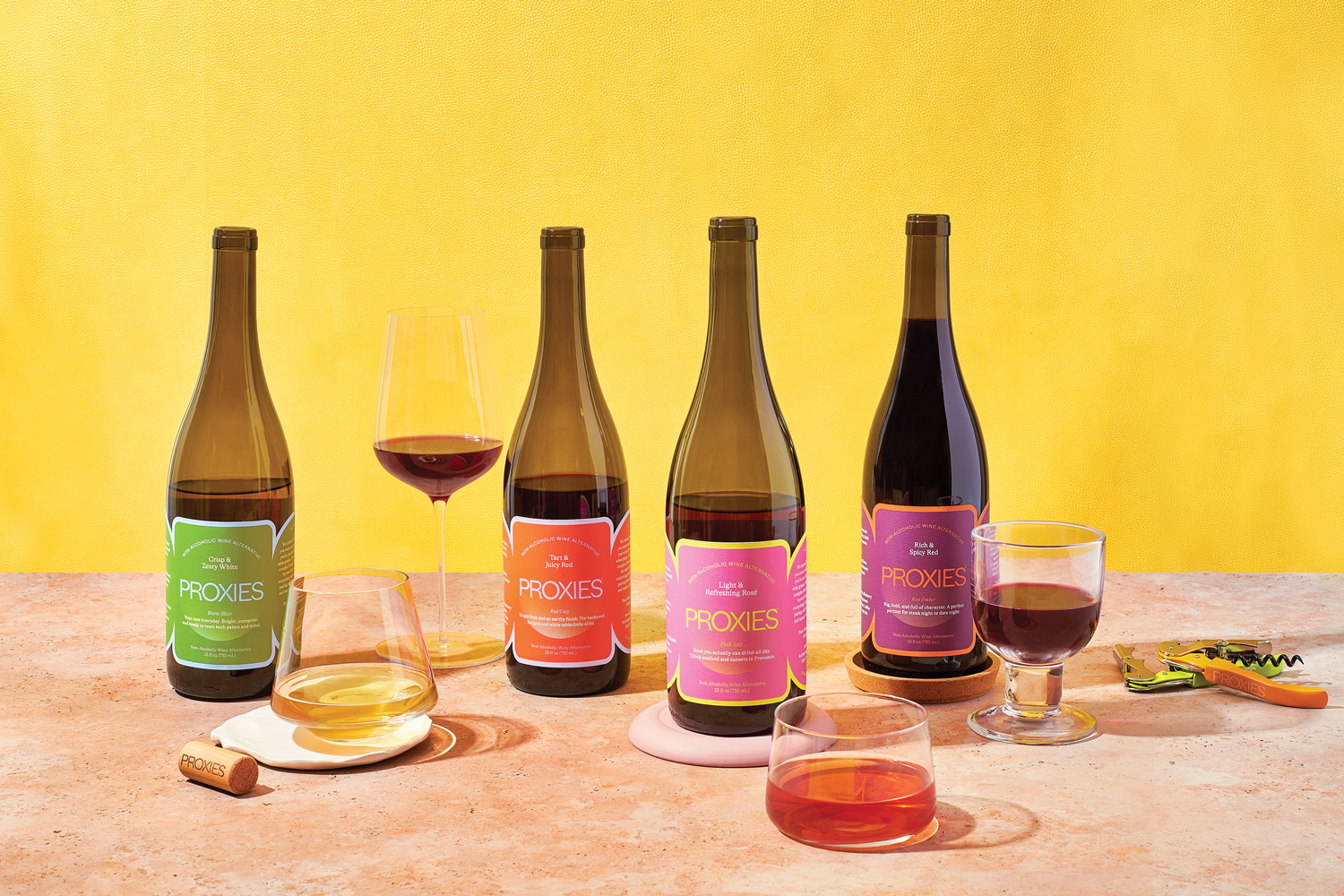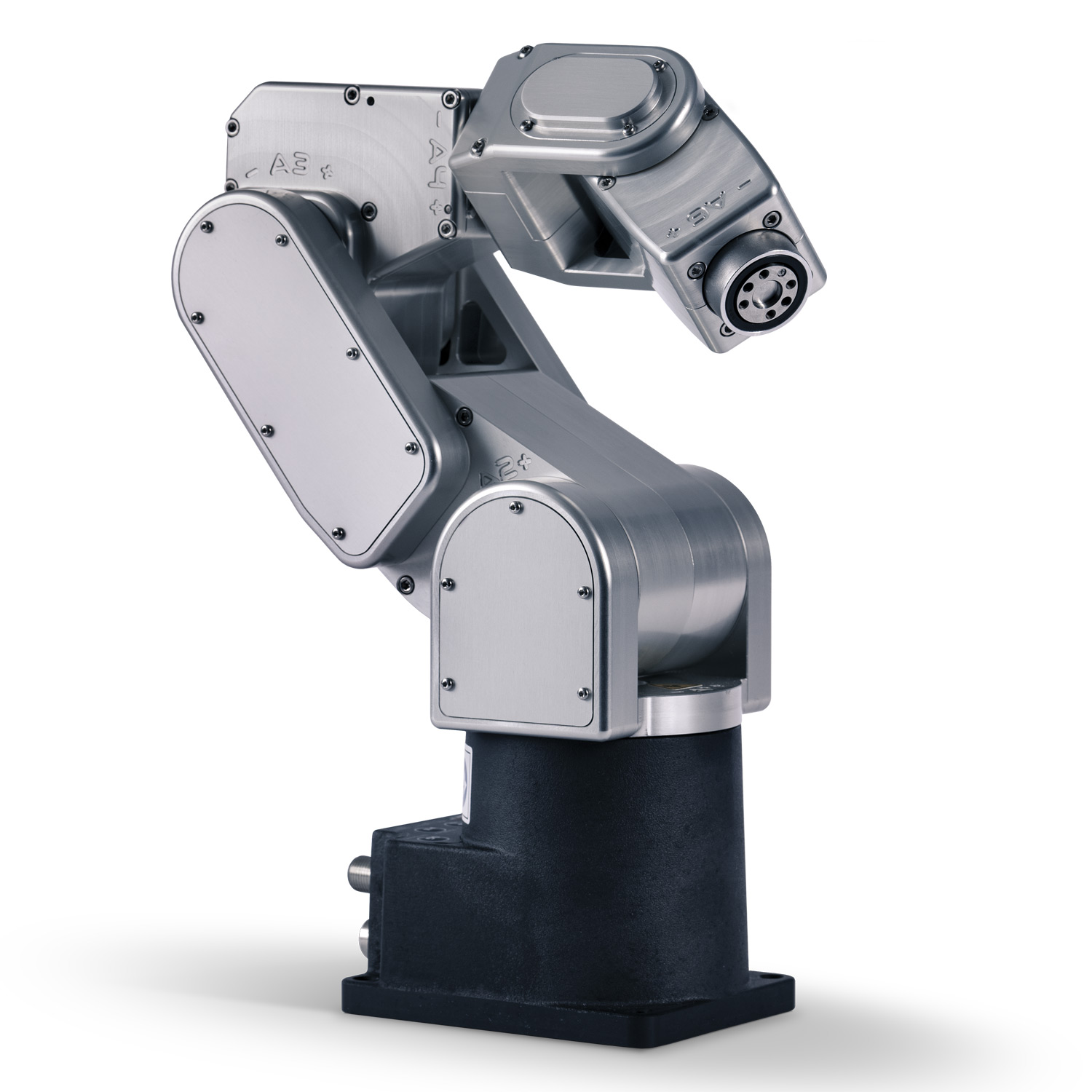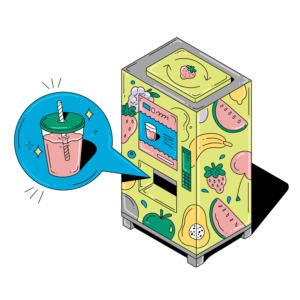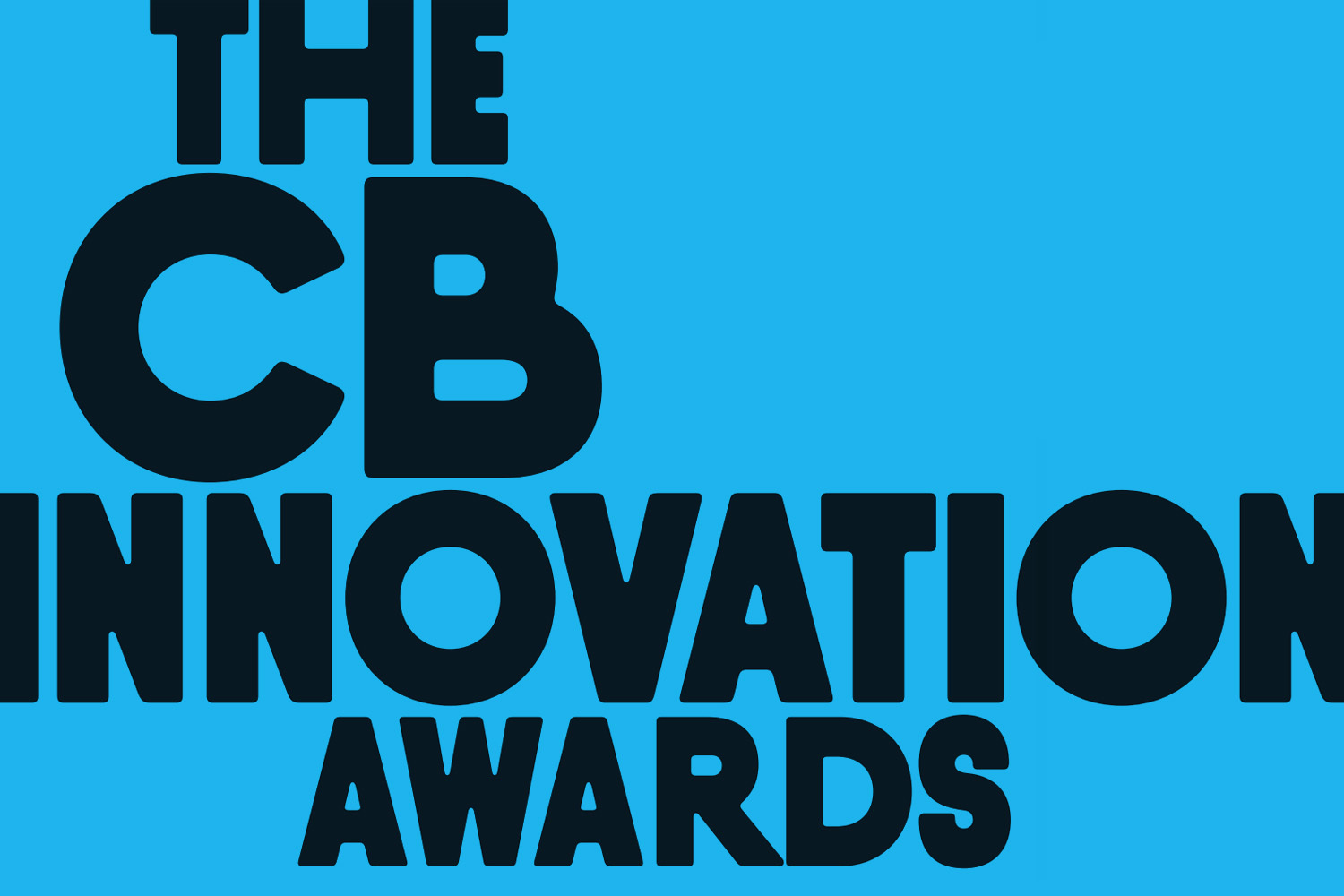If entrepreneurs have learned one lesson in the past year, it’s that business as usual doesn’t cut it in a world destabilized by a pandemic, a global refugee emergency, a climate crisis and the war in Ukraine. Survival requires new ideas. New ideas to fix broken supply chains. New ideas to prevent—and ideally reverse—environmental damage. New ideas to make businesses smarter, more sustainable and better at anticipating customer needs. New ideas that create a better world.
Canadian Business, supported by the research team at the Brookfield Institute for Innovation + Entrepreneurship, is celebrating companies that excel at innovation. We analyzed data on businesses with Canadian headquarters that are leaders in their field and—most importantly—prioritize practices that are sustainable, equitable and inclusive. From that list, our panel of judges selected 25 standouts. They represent the best and brightest in their respective industries.
Meet Canada’s most innovative companies
Best personal finance innovator: Wealthsimple
Founded: 2014
Founders: Rudy Adler, Brett Huneycutt, Michael Katchen
Headquarters: Toronto
It was ahead of its time back in 2014 when it launched Canada’s first “roboadviser”—a nifty managed platform that would ultimately transform the direct-to-consumer investing space. Wealthsimple democratized investing by making it low-cost and DIY, and its early list of firsts is impressive: first commission-free trading platform, first platform to offer regulated crypto, first to provide users more affordable fractional shares.
RELATED: Wealthsimple’s co-founder and CEO on simplifying financial services
Now, as the company surpasses 3 million clients and with $20 billion in assets under its administration, it’s still breaking new ground. This past March, Wealthsimple clients gained access to private credit, whereby retail investors can contribute to big business loans. And the company is currently in beta testing to offer options trading to its users.
And then there’s this: Wealthsimple is so far the only financial organization that’s not a bank or credit union to be granted access by the Bank of Canada to Canada’s forthcoming national real-time-rail payment system. Just the latest thing to add to that list of firstrate firsts.
Best food and beverage innovator: Proxies

Founded: 2021
Founders: Devin Campbell, Charlie and Scott Friedmann
Headquarters: Toronto
While non-alcoholic spirits and beers have grown exponentially in popularity over the past few years, booze-free wine alternatives have lagged behind. That’s because most of them are made by de-alcoholizing wine (usually mediocre bulk wine), resulting in an end product that tastes about as complex as grape juice.
Charlie Friedmann, president of non-alcoholic-wine brand Proxies, developed a product that stands up against its alcoholic counterparts. He uses varietal wine grapes from European vineyards, adds verjuice from Ontario’s Niagara region for acidity and body and then layers in teas for structure, tannin and aromatics, other fruit juices for depth and additional flavour and herbs and spices for aroma and complexity. The goal was to create a non-alcoholic wine alternative that pairs well with food. The list of acclaimed institutions that have Proxies on their beverage menus is a testament to that—the Four Seasons, the Fairmont and the Ritz-Carlton hotel groups are among them. The company is also in talks with provincial liquor boards and major U.S. grocery chains for launches before the end of the year.
Proxies’ core products are free of preservatives—a rare exception among non-alcoholic wines. And for 2023, it’s developing more sparkling wines that’ll match the complexity of its core line. Another new product coming this year is canned Proxies (for the park picnickers, weekend cottagers and music-festival goers) as well as more limited-edition collaborations, like the sparkling rosé the company developed with chefs from Parachute, a Michelin-starred restaurant in Chicago, to pair with its Korean fare. Proxies is also collaborating with a winery in Oregon on a new product—a sign that the wine world, which has long frowned upon non-alcoholic products, is warming up to the idea of booze-free bottles.
Best social media innovator: Pinterest

Founded: 2010
Founders: Paul Sciarra, Evan Sharp, Ben Silbermann
Canadian headquarters: Toronto
It may be a California-based company, but Pinterest has a new 430-square-metre office in Toronto’s financial district that’s pure Canadiana: The meeting rooms are designed around plaid, maple syrup and, yes, poutine.
Scaling its Canadian presence—including national launches of Pinterest TV and Pinterest Academy (an e-learning module to help brands connect with advertisers) as well as 50 new local hires—has been a top priority for the social-media platform. Half of Pinterest’s global shopping-engineering team is now located in Canada, and they’re tasked with building the tech that will drive the company’s growth over the next 10 years.
Best financial security innovator: MinervaAI
Founded: 2018
Founders: Jennifer Arnold, Victor Tay, Damian Tran
Headquarters: Toronto
As any nightclub bouncer will tell you, it’s easier to keep trouble out than it is to remove the source once it’s inside. The stakes are just a bit higher when it comes to financial organizations attempting to keep money launderers off their client lists.
Five years ago, Jennifer Arnold, who has a long history in financial-crime roles at major Canadian banks, teamed up with an artificial-intelligence expert and a data whiz to create MinervaAI. Overnight, their company provided a new kind of anti-laundering process for financial institutions—namely, banks, crypto exchanges and payment platforms—by applying machine learning and deep learning models to the task.
Before Minerva, anti-money-laundering efforts relied solely on a series of manual searches that can take hours of an analyst’s time. Minerva, on the other hand, examines around 4.5 billion data points in seconds.
In a blink, Minerva ensures there are no sanctions against a potential client, scans for anything fishy in the media—everything from national newspapers to blogs to bulletin boards—in 147 languages and identifies whether they are a politically exposed person who could be vulnerable to bribes and corruption. Once a client is given the green light, the platform will continue to keep tabs on them in real time.
The company makes compliance with federal regulations less costly, but it also does something even more important from a reputational perspective: It more efficiently ensures financial organizations aren’t doing business with human traffickers, drug lords or arms dealers.
The next development coming from Minerva will assist the potential client. Details are scant ahead of its launch this summer, but word is that the new tool will allow a person approaching a financial institution to present verified information—think club goer showing his ID—and then, if they want to move on later, put it back in their pocket.
Best point-of-sale innovator: Financeit
Founded: 2011
Founders: Michael Garrity, Casper Wong
Headquarters: Toronto
Making a big investment in your home, like a new deck or a hot tub, can invite plenty of stress about costs. One solution: Financeit, a Toronto fintech company, gives buyers the flexibility to choose a low-cost payment plan.
Founded in 2011, Financeit provides a point-of-sale financing platform to home-improvement companies like California Closets, Home Depot and Lennox Furnace. After customers pass the usual credit checks, the platform helps the company offer an efficient and affordable payment plan—with none of the hidden fees typical of most financing set-ups.
Since launching, the company has expanded from home-improvement services into vehicle and other retail offerings.
Best health care innovator: Maple

Founded: 2015
Founders: Brett Belchetz, Stuart Starr, Roxana Zaman
Headquarters: Toronto
Maple’s virtual-health-care platform found its big moment during Covid, becoming something of a household name, but when it launched in 2015, the idea of accessing a doctor via your computer was revolutionary.
More than just an MD on Zoom, the platform will triage your complaint and allow a doctor to order lab tests and generate prescriptions for you. (Patients without provincial or group coverage pay a monthly fee.) Unlike its main competitors, which hire doctors on shifts, Maple functions more like Uber; when one of its 3,000 medical professionals has a day off from their regular job, they can hop onto the system to take on extra work.
Later this year, Maple will launch a new product that might take away from its first one: a platform designed to keep its four million clients healthy. Like a Fitbit times 10, the platform will take into account your age, sex and medical history and give health and nutrition guidance to keep you on your most optimal track to avoid high-risk conditions.
Best software support innovator: AOT Technologies
Founded: 2010
Founders: George Philip, Praveen Ramachandran
Headquarters: Victoria
You have a great idea for a new business, but it’s going to require a lot of technology, which means hiring web developers and building complex applications. And in a competitive job market, it can be challenging to find the right talent. But you could just work with AOT Technologies instead.
The Victoria-based start-up specializes in open-source low-code development, which can be built with 80 per cent less programming time, freeing up staff to work on high-priority projects. Making changes to a finished system can be as easy as using drag-and-drop tools. This means organizations—including several ministries in the B.C. government, which use an AOT software to streamline workflows—don’t have to invest as much in recruitment or worry about finding a wizard of a developer.
This year, AOT is adding new functionalities that make it easier to automate businesses end-to-end—putting the power of coding into clients’ hands.
Best self-care innovator: Nixit

Founded: 2018
Founder: Rachel Newton
Headquarters: Toronto
Any time is a good time to talk about that time of the month: So goes the guiding philosophy of the period-care company that is “nixing” the shame around menstrual health while also changing the management of flows. Nixit’s signature BPA-free silicone menstrual disc sits below the cervix, is easy to clean and has a five-year lifespan.
The company estimates that 42 million period products have been diverted from landfills since it launched in 2018. A 100 per cent organic waterbased lube is Nixit’s latest offering, sold as a companion to the disc or as a standalone product.
Like all things Nixit, the design and branding are Gen-Z-friendly, clean and functional but also chic enough to be displayed on your nightstand—or even your Instagram feed.
Best marketing innovator: Vendasta

Founded: 2008
Founders: Jason Collins, John Fothergill, Ches Hagen, Guy Kelsey, Brendan King, Jeff Tomlin, Allan Wolinski
Headquarters: Saskatoon
For small- and medium-sized businesses, the nagging question is always: What would we be able to achieve if we just had resources like the big players?
Vendasta, a tech consultancy headquartered in Saskatoon, delivers just that to some 5.5 million local businesses around the world. For Anderson Marketing Group, Vendasta overhauled the company’s online advertising and e-commerce options, leading to 250 per cent annual growth since 2020.
This year, it seems like every company wants to keep up with the wave of AI developments. Vendasta is helping its clients implement AI tools that help write social marketing campaigns in a snap, generate social-media images and even respond to customer reviews on Facebook and Google. The result is higher efficiency, more resources being made available for other projects and being better able to compete in a marketplace dominated by the big guys.
Best investment innovator: Sandpiper Ventures
Founded: 2020
Founders: Cathy Bennett, Rhiannon Davies, Sarah Young
Headquarters: Halifax
When Julia Rivard Dexter was seeking funding for a gamified learning software, she kept running into the same kind of resistance: Potential investors loved her product, but they felt the company would benefit from a “different” (read: male) kind of leader. Raising capital was slow, and the cheques she was getting were slight.
A saviour came in the form of Sandpiper Ventures, which provided the money she needed as well as the momentum: Sandpiper’s vote of confidence inspired investments from BBC and the Telus Pollinator. Rivard Dexter ultimately exceeded her $3 million funding target.
The challenge of fundraising while female is something the nine co-founders of the Halifax-based VC firm—which is devoted to investing in seed-stage start-ups founded and led by women—experienced first-hand while hunting for the $20 million they needed to launch their fund.
This is, sadly, part of a broader pattern. While statistics show that businesses with women founders deliver higher revenue, only 2.3 per cent of venture capital goes in their direction. Systemic barriers start with the basic reality that people are more likely to trust individuals who are most like themselves, creating a self-perpetuating old (white) boys club.
When women do get the chance to pitch their projects to potential investors, they are often asked about how they will mitigate loss, whereas male founders are asked how they will stimulate growth. The pitch process itself—a high-octane grill sesh—suits bro-ish personality traits, which is why Sandpiper has opted for a deeper approach, focused less on bravado and more on mutually beneficial partnerships. Atypically, they devote half the time in an initial meeting to letting founders ask them questions. When things move forward, it is with the understanding that not just money but the accumulated expertise and networks of the co-founders will be part of the package.
Three years in, Sandpiper’s growing portfolio includes businesses that specialize in AI, edtech, health care, flower delivery and more. The current tech-sector downturn means competition for capital is fiercer than ever, but Sandpiper co-founder and managing partner Sarah Young sees a silver lining: Women entrepreneurs have rarely reaped the benefits of a soaring market or overvaluation. They are used to making more from less.
Best home tech innovator: Ecobee

Founded: 2007
Founder: Stuart Lombard
Canadian headquarters: Toronto
Last September, San Diego experienced a prolonged heatwave. Residents who had an Ecobee smart thermostat in their home would occasionally get a message: Would they consent to their power consumption being reduced for a time in order to avoid a regional blackout? Throughout the state of California, fifty-thousand Ecobee customers voluntarily participated in the program, saving about 50 megawatts at peak times and helping cities like San Diego keep the lights on.
Ecobee invented the first wifi-connected thermostat in 2009, and its innovative thermostats have since evolved to track household energy use to help consumers save money and use less power. Its devices also serve as a smart speaker, an air-quality monitor and even a security system if integrated with the appropriate software.
And having been acquired in 2021 by Generac, an energy-technology company, Ecobee is now offering integrations with Generac’s line of wifi- and cellular-enabled home standby generators, which will help homeowners keep an eye on the status of their backup power too—which is especially handy when power outages like the one faced by San Diego can’t be avoided.
Best green energy innovator: Solaires
Founded: 2020
Founders: Fabian de la Fuente, Sahar Sam
Headquarters: Victoria
Despite a pandemic-related supply-chain hiccup, solar power continues to be the best news story in renewable energy, with prices still plummeting and adoption on the ascent. Solaires, a Victoria-based cleantech firm, is making solar even more readily accessible and useful through unique perovskite-based solar “ink” and solar cells. A perovskite crystal has great compositional flexibility and, unlike conventional silicon, can be used in solar cells at a fraction of the production cost and energy; it can also be tuned to precisely match the sun’s spectrum.
Solaires’s patented Solar Ink can be applied to rigid or flexible substrates, like thin film solar cells, but also to Internet of Things wearables and sensors, and it can be used outdoors or indoors. The company’s aim, in fact, is to capture the sun’s energy literally everywhere; in a decade’s time, it expects, its products will allow every single battery to be charged directly through solar.
Solaires is just moving into the international market now—it recently signed distribution agreements in Korea and Japan—but its future looks very bright indeed.
Best green consumer product innovator: Tru Earth

Founded: 2019
Founders: Kevin Hinton, Brad Liski, Ryan McKenzie
Headquarters: Port Moody, B.C
A British Columbia trio of dads—Kevin Hinton, Brad Liski and Ryan McKenzie—launched Tru Earth as a laundry-detergent company. Their hero product—a two-inch-by-four-inch phosphate-free detergent strip packaged in biodegradable cardboard, designed to replace liquid detergent in a plastic container—has since led to a line of environmentally friendly household products, such as toilet-bowl cleaner, dishwasher-detergent tablets, dish sponges, fabric-softener strips and beeswax wraps.
The company recently expanded into major U.S. grocery and hardware chains, such as Publix and Kroger. As of October 2022, Tru Earth could be found in more than 7,000 retail locations, and the founders say the popularity of their products has prevented more than 107 million plastic containers from being created. If they have their way, green cleaning will be the default in every household.
Best packaging innovator: Eco Guardian
Founded: 2004
Founder: Anil Abrol
Headquarters: Newmarket, Ont.
Southern Ontario company Eco Guardian has been creating green product solutions, like compostable cutlery, cups and food-takeout containers, since long before governments began mandating them. It makes them with rapid-growth crops, like wheat straw, sugar cane and bamboo, partnering with facilities to use post-industrial materials, which reduces waste and promotes a circular economy.
When the pandemic hit, the company expanded with a line of toilet paper, napkins, facial tissues and paper towels made out of bamboo instead of trees. Bamboo, a grass, produces 10 times the paper yield of trees and regenerates easily without replanting.
In the summer of 2022, the company won Sobeys’ Plastic Waste Challenge with a bamboo- and sugarcane-based design that consists of two trays—one with holes and one solid—with a pad in between. It serves as a green alternative to the Styrofoam and plastic trays commonly seen in grocery stores today. The new packaging will be piloted in Sobeys locations in Nova Scotia, with the goal of being rolled out nationally.
Best real estate innovator: Wahi
Founded: 2022
Founder: Benjy Katchen
Headquarters: Toronto
The real estate sector got a shock when this start-up launched an alternative-home-sales platform that gives homeowners more options and more control when selling their properties. The control comes in the form of paying only a one per cent commission (for a home auction) or a 1.5 per cent commission (to sell with listing, showings and negotiation help from Wahi staff) instead of the usual 2.5 per cent. This translates to a savings of about $10,000 to $15,000 per home, based on the current average Toronto prices.
Home sellers who wish to go the traditional realtor route can also use Wahi’s search function—created in partnership with the Vector Institute for Artificial Intelligence—to compare the services and fees of realtors to choose the best one for their needs.
While Wahi is currently only operating in the Greater Toronto Area, the company plans to add more markets in Ontario—and ultimately anywhere people want to take control when selling a home.
Best robotics innovators: Mecademic

Founded: 2013
Founders: Ilian Bonev, Jonathan Coulombe
Headquarters: Montreal
Jonathan Coulombe and Ilian Bonev founded Mecademic with a lofty goal: Make robots smaller and more affordable. An industrial robot arm, used to automate manufacturing processes, can cost up to $400,000 and, depending on the application, be larger than most human beings. But the Meca500, one of Mecademic’s flagship products, is about a foot tall and can be held in one hand.
The petite robot arm is used to do finicky jobs with more precision than a human, including assembly, inspection and testing in medical-device manufacturing, lab automation and the making of jewellery and watches. It’s also a fraction of the price of its competition, at around $23,000.
Demand is building: In late 2022, Mecademic released the latest version of Meca500, which has since sold almost 20,000 units in 40 countries. This year, it will be releasing a new model of its other robot, MCS500, and developing more new products.
Best social work innovator: CarePros
Founded: 2016
Founder: Charles Wong
Headquarters: Edmonton
While ongoing pandemic fallout and a youth-mental-health epidemic have left many Canadians reeling, CarePros remains a bright light in the gloom. Since 2016, the Albertan youth and child-care organization has provided a battery of badly needed services, including personalized respite care (at home and otherwise), community support and behavioural-development support. It tailors programs with culturally informed practices for Indigenous children and helps youth looking for employment. Ultimately, the goal is to create better, stronger and safer communities, especially for children who’ve experienced significant trauma.
Most recently, CarePros launched a new model of foster care that treats behaviours as symptoms rather than problems and is implementing new therapies to better understand how trauma has affected the brains of the children and youth it cares for. Next up: custom case-management software that CarePros believes will set a new industry standard.
Best commercial vehicle innovator: Geotab

Founded: 2000
Founder: Neil Cawse
Headquarters: Oakville, Ont.
During the Covid-19 pandemic, we all became keenly aware of how important supply chains are—and how easily they can be disrupted. Geotab is making that entire process smarter. The company tracks commercial fleets using sensors that provide data on everything from location to vehicle performance and safety. To date, Geotab has connected to 3.5 million vehicles worldwide and processed more than 55 billion data points daily.
MORE: Geotab’s family-first ethos means kid-approved snacks in its cafeteria and flex hours
Companies use that data to plan more efficient routes and make better choices about what kinds of vehicles to use. As a result, Geotab makes a big environmental impact. If cars and trucks run more efficiently, they use less fuel—so the analysis the company provides is invaluable for making commercial fleets green.
And a newly announced partnership with Synop, a platform for electric-vehicle operations, will also give clients access to integrated EV charging and energy management. As many truck fleets convert to EVs, this will help them track battery-charge times and the energy efficiency of each vehicle, which in turn helps them make better planning decisions.
Best talent resources innovator: Staffy
Founded: 2015
Founder: Peter Faist
Headquarters: Toronto
When entrepreneur Peter Faist launched his Staffy start-up, it helped restaurants and bars get last-minute servers and cooks. But the moment the pandemic hit hospitals, long-term-care homes and medical clinics, leading to burnt-out and sick staff, the company became an invaluable resource for matching up those institutions with qualified nurses, personal-support workers, dietary aides, cleaners and other staff.
Today, there are approximately 20,000 workers available on Staffy, helping fill staffing shortages at major hospitals and medical clinics in six provinces. On average, these workers fill 21 shifts a year. Because many health-care institutions still face a backlog in operations staff, the company is adding X-ray and CT-scan technicians, among other roles, and has its sights set on a U.S. expansion by 2024.
Best fashion innovator: Folds Wear

Founded: 2021
Founder: Nina Kharey
Headquarters: Calgary
Nina Kharey, the engineer and designer behind online retailer Nonie, built a reputation for practical and luxurious womenswear that’s a favourite of the likes of Meghan Markle. But during the pandemic, Kharey did an about-face, retrofitting her Calgary factory to produce masks for health-care workers. She also saw an opportunity to improve on standard-issue scrubs, which tend to be ill-fitting and poorly made. Worse, because most scrubs are made with easily contaminated fabric that contains plastics, some 16,000 tonnes end up in North American landfills every year.
Kharey’s solution: Folds Wear, a line of tailored scrubs that come in sportier looks with jogger-style pants and crewneck shirts.
The scrubs are made from recycled materials that are more durable and withstand multiple washes. Folds Wear fabric also contains silver ions, a topical antimicrobial agent that kills viruses on contact—keeping wearers safe while looking stylish.
Kharey’s efforts were justified by the enthusiastic response from health-care workers. Now she’s expanding with a line of lab coats and a lighter fabric for professional blouses. Her flagship brand also now uses silver-ion technology and green fabrication. For Kharey, sustainability is the future of fashion and function.
Best 360 tech innovator: Incepta

Founded: 2010
Founder: Ishtiaq Ahmed
Headquarters: Mississauga, Ont.
The number of software tools available to businesses today can be dizzying. How to choose the ones that will help run a business efficiently, build prospects, please clients and cut costs?
Incepta take some of the guesswork out of the equation. This Mississauga company helps businesses transform digital operations by offering a full complement of software options. Its systems for construction-project and large-building management optimize operations and energy use at worksites and in built structures. Other services, like Incepta HRX, automate and streamline every step of HR recruitment and onboarding.
This year, the company also launched two new products for financial services: Incepta APx, which streamlines revenue operations, and Open Finance Readiness Assessment, an advisory service for Canadian financial institutions. It’s just one more way Incepta is making it easier for companies to focus on work instead of struggling with the latest addition to the software stack.
Best creative culture innovator: Wattpad
Founded: 2006
Founders: Allen Lau, Ivan Yuen
Canadian headquarters: Toronto
When Wattpad launched during the early days of social media, it had a goal of disrupting the traditional world of book publishing: User-generated content did away with the gatekeepers and meant that anyone with an internet connection could share their story.
Now the Canada-based company (it was acquired in 2019 for an estimated $600 million by Korean tech firm Naver) is making similar waves in the entertainment world, turning its most popular content (often fan fiction with massive built-in audiences) into film and TV adaptations via Wattpad Webtoon Studios. Last summer’s Through My Window, one of Netflix’s most popular international titles, was based on a steamy Spanish romance that got 400 million views on Wattpad before being published as a paperback. A sequel coming this June is just one of the 120-plus projects currently in the pipeline.
Best construction innovator: Carbon Upcycling
Founded: 2014
Founder: Apoorv Sinha
Headquarters: Calgary
We’ve all upcycled—turning an old T-shirt into a wash rag, for instance—but Carbon Upcycling takes that principle to a whole other, planet-saving level. Its technology is as elegant as it is effective: The company captures industrial by-products—up to 42 different ones, from coal- and glass-manufacturing plants and more—and combines them in a reactor with similarly captured on-site carbon-dioxide emissions.
The chemical reaction produces a material additive that can be used in concrete, cement and industrial plastics. The process is a double whammy of sustainability—a portion of CO2 is prevented from escaping into the atmosphere while the new material is made stronger and more durable.
Since 2014, Carbon Upcycling has scaled up by more than four million times, and already this year, it has signed deals for two new cementitious-material-production and carbon-capture facilities in the Alberta construction sector as well as another facility in Mississauga, Ont.
Meanwhile, the company’s consumer-facing brand, Oco, has been injecting CO2 into everything from yoga mats to crayons. The possibilities will soon be virtually endless—this past April, Carbon Upcycling launched a new line of carbon-captured 3-D printing filaments.
Best food waste innovator: Trendi

Founded: 2019
Founders: Carissa Campeotto, Craig McIntosh
Headquarters: Burnaby, B.C.
The name may conjure thoughts of fast-fashion fads or culinary flavours of the month, but Trendi is, in fact, all about long-term sustainability in the food industry.
Carissa Campeotto and Craig McIntosh, a marketer/cold pressed juice pioneer and professional chef, respectively, were looking for ways to dramatically reduce the amount of food waste generated in Canada. It’s a colossal problem: 58 per cent of food produced is lost or wasted, costing the Canadian economy more than $49 billion every year, while more than 800 million people worldwide suffer from food insecurity.
Their solution was to go directly to the source. The company’s trucks—kitted out with custom-designed robotic machinery—collect, clean, process and package damaged or leftover produce, transforming that misfit food into shelf-stable, freeze-dried powdered ingredients for use in packaged foods, pharmaceuticals, animal feed, cosmetics and more.
Currently, Trendi has one of its so-called BioTrim units at a B.C. farm and another on its way in Ecuador. These ingredients are also used in Trendi’s Smoothie Machines, candy-coloured vending machines that dispense four different flavours of smoothie 24-7. Five such machines are scattered throughout the Vancouver International Airport, and another 10 are scheduled to appear in other locations in the province later this year.
The company also collaborates with post-secondary institutions; it joined forces with Niagara College’s Canadian Food & Wine Institute on its Food Waste Challenge, inviting students to create dishes using Trendi’s freeze-dried ingredients. This past March, the Alberta arm of start-up incubator Plug and Play selected Trendi as its first food-and-beverage cohort, a move that will accelerate the company’s development and connect it to big industry players. Trends may come and go, but “waste not, want not” will forever be words to live by.


